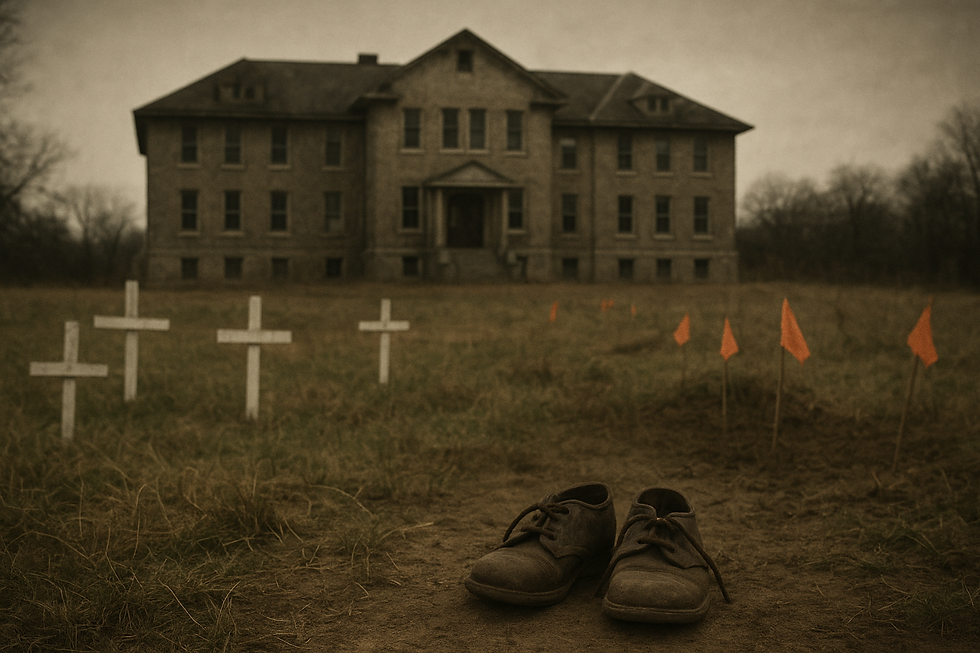Personal Reflections on Canada Day
- Alison Lam

- Jun 30, 2025
- 3 min read
Every year on July 1st, I find myself reflecting deeply on what it means to celebrate Canada Day. For many, it is a day of fireworks, barbecues, and national pride. For me, it becomes more complicated.
I came to Canada as a child, brought here by my parents who were seeking a better future for me. We left Hong Kong in the years leading up to its handover from Britain to China, a momentous occasion anticipated by some and dreaded by others. My parents feared what the future might hold for me and made the difficult decision to start over in a foreign country they hoped would offer opportunity and freedom.
We arrived with very little. Like so many immigrants, we had to rebuild our lives from scratch, living our day-to-day lives in a language and culture not our own. It wasn’t easy but we were lucky. Canada gave us opportunities, such as education and democracy, for which I am very grateful.
And yet, Canada Day is not a simple celebration for me. As I’ve grown older and learned more about this country, I’ve come to understand that the freedoms and opportunities I’ve enjoyed have not been equally shared. For Indigenous peoples, July 1st is a painful reminder of colonization, displacement, and both physical and cultural erasure. I am not Indigenous, and I would never claim to fully understand the trauma that continues to this day. However, having been born in a British colony that was treated as a political bargaining chip, I carry a small, personal sense of what it means to be part of a colonial population whose identity was neither accepted nor appreciated.
Canada’s history with people of Chinese descent is also fraught. In the late 19th century, thousands of Chinese laborers were brought to Canada to help build the Canadian Pacific Railway under brutal and dangerous conditions. Many died doing the work that helped physically unite this country, for which they were thanked with exclusion. In 1885, the government imposed the Chinese Head Tax, a fee that Chinese immigrants had to pay just to enter the country. It started at $50 and eventually rose to $500, a staggering sum at the time.

Then, on July 1st, 1923, the government went even further. The Chinese Immigration Act, known to many in the community as the Chinese Exclusion Act, came into effect, banning almost all Chinese immigration to Canada, separating families, and requiring all Chinese residents, even those born in Canada, to register with the government or face fines, detention, or deportation. While the rest of the country celebrated what was then known as Dominion Day, for Chinese Canadians, that day became known as Humiliation Day. For 24 years, Chinese families were kept apart, communities were fractured, and dignity was denied.
Even today, that legacy lingers. During the televised English language leaders debate of the 2025 Canadian federal election, our current Prime Minister Mark Carney referred to China as “the biggest security threat to Canada.” No further elaboration, simply "China". While geopolitical concerns are real, rhetoric like this too often spills over into everyday life, fueling a rise in anti-Asian and specifically anti-Chinese sentiment across the country.
So on Canada Day, I reflect. I think about the sacrifices my parents made, the resilience of Indigenous communities, and the long road toward justice and Reconciliation. I think about how we can build a Canada that is more honest about its past and present, and more inclusive in its future. Canada gave me a home. But loving a place means holding it accountable. And that, too, is a form of patriotism.



